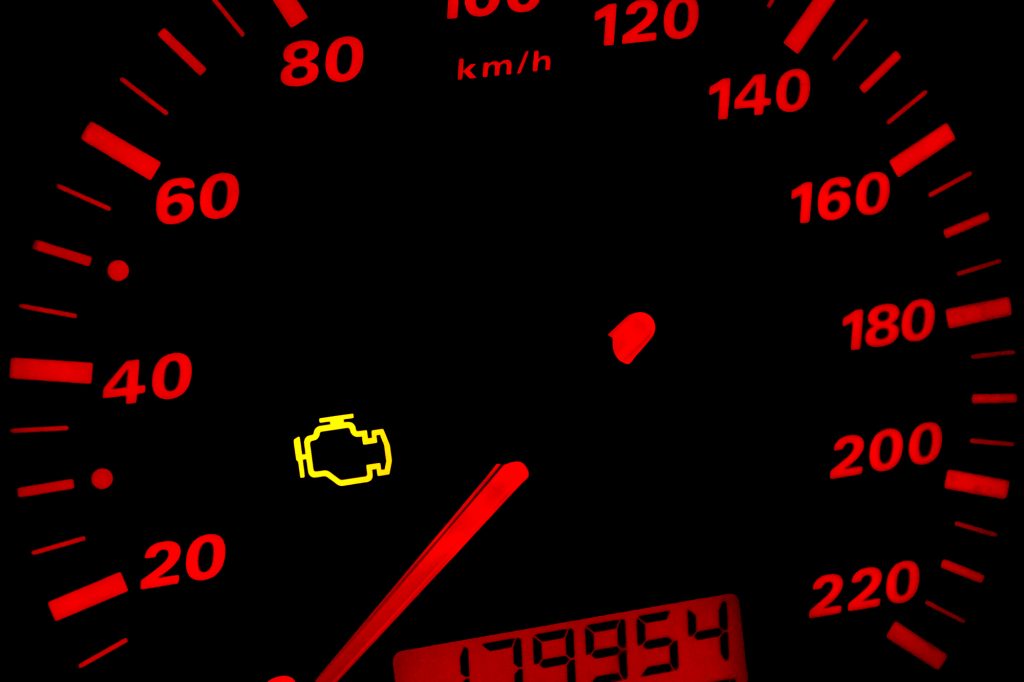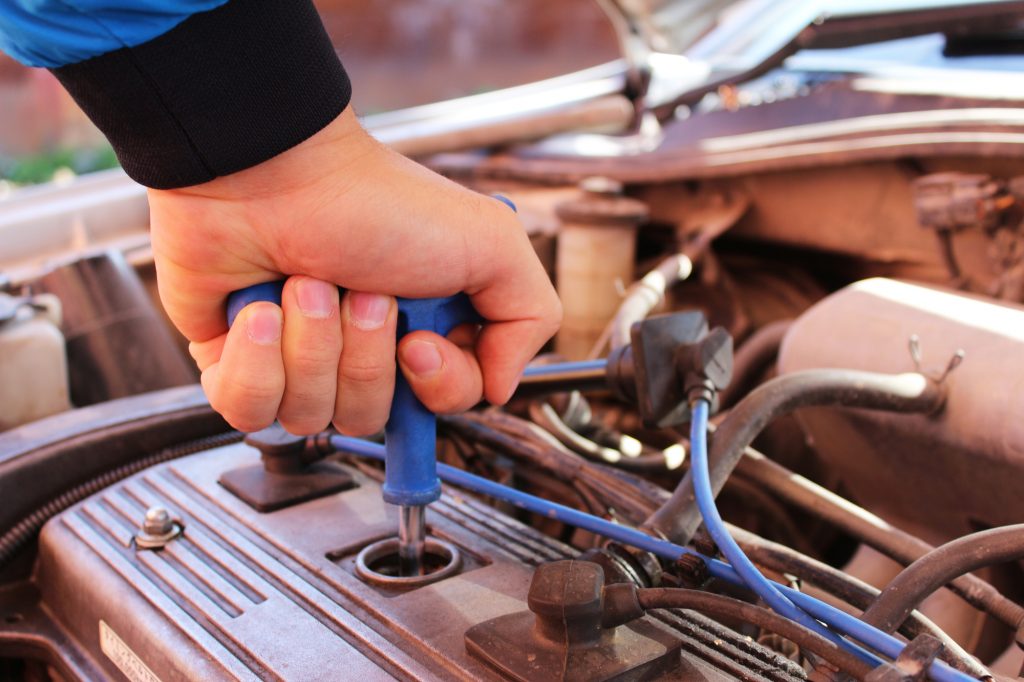Is Your Check Engine Light On?
Let’s say it’s a beautiful sunny day, you’re driving down the road and suddenly you notice your check engine light is on. Is it time for a panic attack? Should you pull over and get your vehicle towed in right away? Well, it depends, but it’s not necessarily an emergency. The Check Engine Light is a way for your car to talk to you, and it’s telling you “something is wrong.”

If the Check Engine Light is flashing, you need to pull over and stop in a safe location right away. A flashing light indicates a critical problem with your engine, and you should get it fixed immediately. This is a “stop driving and call road service” issue. If you keep driving with a flashing Check Engine Light, you can cause major damage to the critical systems in your vehicle.
However, if your Check Engine Light is just on, it’s a warning that your car’s computer has sensed a malfunction and you should get it checked out. It’s typically not a critical issue, but failure to repair the fault can eventually result in damage to other systems in your car. And in most states, your car won’t pass mandatory emissions tests if the Check Engine Light is on.
First, let’s talk about how the Check Engine Light works. All light-duty vehicles (less than 8,500 pounds) sold since 1996 in the United States are equipped with an onboard computer that constantly monitors your vehicle’s engine, transmission and other major operating systems. The purpose is to ensure that the vehicle is always operating at top efficiency with the lowest possible emissions.
Your vehicle’s electronics systems will constantly adjust and fine-tune various parameters according to driving to get the best performance and efficiency. When the computer reads that any of these parameters do not fall within the acceptable range for operating the vehicle, the computer will store a “code” and your Check Engine Light will be illuminated to warn you that you may have a problem. If the Check Engine Light turns on, you should take your vehicle to a certified technician to check the faults and restore your car to the manufacturer’s specifications.
But that light doesn’t necessarily mean that your car needs expensive repairs. Sometimes it’s just a random “glitch in the system” that can be caused by dramatic changes in weather or a tank of bad fuel. For instance, if you recently had your battery replaced, some random codes may be set as your vehicle re-learns all its systems. It may be minor, but it’s always worth getting it checked out.
Some of the most common Check Engine Light faults include:
Loose Gas Cap
Believe it or not, a loose gas cap can cause your Check Engine Light to come on. This is because modern fuel injection systems are based on a pressurized sealed system with evaporative control to minimize emissions. This system can lose pressure through the loose gas cap and negatively impact the performance of your vehicle.
Oxygen (O2) Sensor Needs Replacement
Your oxygen sensor measures the amount of unburned fuel and oxygen that are in the exhaust gases. These measurements are used to adjust how much air and fuel the computer allows into the engine. This is a key performance indicator and a failing or failed O2 sensor can negatively impact performance. If you don’t get this fixed, your engine will burn more fuel than needed, you will lose fuel economy, and faulty O2 sensors can cause damage to your spark plugs and catalytic converter.
Bad Catalytic Converter
Your catalytic converter helps protect the environment and reduce smog by converting harmful carbon monoxide into carbon dioxide. Damage usually occurs due to neglected maintenance in other parts of the engine. If you don’t replace your catalytic converter your vehicle will not pass an emissions test, you will experience dramatically reduced performance and fuel economy, and your car may run at a higher temperature.
Because a failing catalytic converter operates at an extremely high temperature, you also run a much higher risk of fire.
Error With The Mass Airflow Sensor (MAF)
The mass airflow sensor measures how much air is entering your engine to determine how much fuel is needed to run your engine efficiently. A dirty or failing mass airflow sensor can cause a rough idle or poor operation of the engine. Faulty sensors can cause damage to spark plugs, O2 sensors or catalytic converters. If you don’t get this fixed, you’ll notice poor idle, bad performance and awful fuel economy.
Replace Spark Plugs, Plug Wires or Coil (Misfire)
Your spark plugs ignite the air/fuel mixture in the combustion chamber of your vehicle. The spark plug wires deliver the spark from the ignition coil to the spark plugs. An error in this system will cause poor performance and can cause too much unburned fuel through your exhaust. This can cause a clogged catalytic converter or damage to the other parts of your ignition system and O2 sensors.

Why Go To A Dealership For Check Engine Light Repairs?
You can get the codes read from your Check Engine Light at almpst any auto parts store or corner repair shop. There are even readers you can purchase from a variety of stores and online retailers. But those readers only tell you the code that was set in the computer and don’t necessarily give you a good diagnosis of what may be causing the problem.
To get more detailed diagnostics or to get repairs that are covered by your Mazda warranty, you should visit the Neil Huffman Mazda Service Department. We have Mazda-trained technicians and Mazda certified diagnostic equipment to get you the best and most up-to-date repair information.
Neil Huffman Mazda also stocks the same Mazda parts that are used to assemble your car, so you can count on like-new performance when you drive your car home after the repairs are done.
While you wait for your Mazda service, take advantage of our cozy and comfortable customer lounge, which includes:
- Free Wi-Fi
- Complimentary gourmet coffee, soft drinks, water and snacks
- Safe and clean kid-friendly play area
- Gaming systems
- High-definition flat screen TV’s
Don’t be afraid of your Check Engine Light. Schedule your Mazda-authorized service at Neil Huffman Mazda today online or by calling 502-410-0710.





